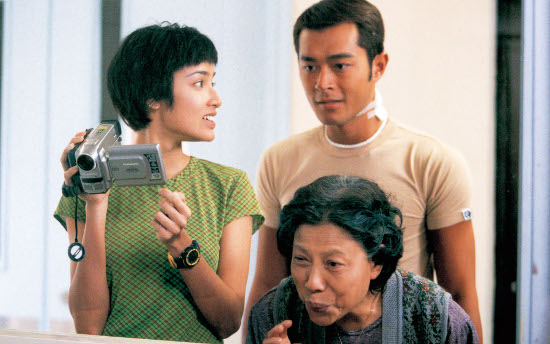A while ago, I had an interesting conversation on Twitter with film scholar and critic Rowena Santos Aquino. It all started from her pointing out a beautiful article by Grady Hendrix on, among other things, the lack of film preservation efforts in Hong Kong. Some days later, Rowena linked this article to me, in which Paul Fonoroff talks about a newly restored version of Clifton Ko Chi-Sum’s All’s Well, Ends Well.

The conversation immediately fired up my never-ending love for Hong Kong cinema. So I went through my DVD collection and pulled out my copy of Bullets Over Summer. I couldn’t help but thinking of Grady Hendrix’s words while the closing credits where crawling bottom-to-top.
Bullets Over Summer probably doesn’t have the power of Fruit Chan’s best works when it comes to dealing with post-handover tensions. Nonetheless, Wilson Yip relates to the loss of Hong Kong’s identity in his own peculiar way.
The director explores time and its passing, focusing on relationships between people of different age and generations. It is really illuminating to notice how these relationships change day after day. They are never destined to last forever, but what they offer is precious moments of joy and playfulness. They can be relentlessly caring, tender and romantic, and they can also turn out to be something entirely unexpected.
However beautiful these interactions are, time moves on and slowly the characters lose everything: a friend, a lover, money, a purpose, a family. The old Granny exemplifies the inevitability of time and its consequences at best. Memory doesn’t serve her well anymore, presumably due to some sort of Alzheimer’s disease. She seems to find a peace of mind in her motherly role, desperately believing that her surrogate reality is the only thing left to live by. Just as much as Mike believes until the very end he can provide for his new-found loved ones.
Bullets Over Summer acts like a lesson on the fragility of our dreams and has left me with a warning. There is a little bit of Granny’s reality in every Hong Kong cinema lover out there, including me. I remember back in 2014 at Far East Film Festival a whole weekend dedicated to Hong Kong, with talks and writings devoted to an industry that had necessarily transformed itself. Somehow, the naive nostalgia felt bigger than the actual certainty that Hong Kong will never be the same again.
Links
- Now Playing: “Hail, Caesar!” by Vikram Murthi
- An Interview with A.O. Scott by Isaac Chotiner
- Sundance Film Festival 2016 by Michael Koresky